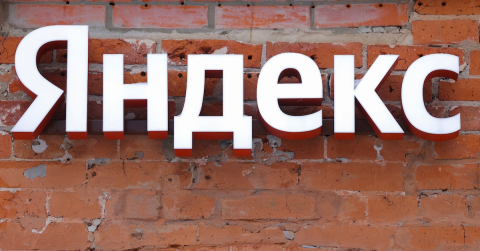Yandex Bans Crypto Services Advertisements on its Network
Russia’s largest search engine, Yandex, has taken a significant step in the evolving landscape of cryptocurrency regulation by banning advertisements related to crypto services within the country. This decision, enacted on August 19, aligns with broader governmental efforts to impose stricter controls on the rapidly expanding crypto industry, which has been largely unregulated until now.
Yandex’s prohibition targets a wide range of crypto-related ads, including those promoting crypto exchanges, blockchain services, smart contracts, crypto mining, and initial coin offerings (ICOs). Additionally, advertisements promoting potential earnings from these activities are also banned. However, Yandex will still allow ads for Bitcoin mining equipment and educational materials related to cryptocurrency events, indicating a nuanced approach to regulation rather than an outright rejection of all crypto-related content.
This move comes amidst heightened efforts by the Russian government and central bank to bring more oversight to the crypto market. The authorities are particularly concerned with mitigating financial instability and curbing illegal activities such as money laundering, which are perceived risks within the largely unregulated cryptocurrency space. In parallel, the government is exploring the establishment of domestic cryptocurrency exchanges to ensure that crypto transactions remain transparent and fully compliant with Russian law.
Yandex’s actions mirror a broader global trend of tech companies facing increased government pressure to regulate the content allowed on their platforms, especially as cryptocurrencies gain mainstream attention. This scenario draws a contrast with Google’s recent inclusion of crypto wallet balances in its search features, a move that highlights the varied approaches taken by tech giants worldwide. Notably, Google had previously banned Bitcoin-related advertisements in 2018, reflecting the evolving and often contradictory regulatory landscape.
In a significant development for the Russian crypto sector, President Vladimir Putin recently signed a bill legalizing cryptocurrency mining within the country. This legislation restricts mining activities to Russian legal entities and registered individual entrepreneurs, paving the way for more structured and potentially lucrative mining operations within the country’s borders. The legal framework is expected to attract increased investments, particularly in regions with abundant energy resources, where crypto mining could flourish.
Despite Yandex’s ad ban, the outlook for Russia’s crypto-mining sector remains optimistic. Andrey Katayev, Director of Energy Markets and External Relations at the Russian Power System Operator, recently indicated that the nation’s crypto mining capacity could surge by 6.9 gigawatts, with domestic miners eager to expand their networks significantly. This potential growth underscores the government’s dual strategy of fostering a regulated yet thriving crypto industry.
However, the advertising restrictions imposed by Yandex could pose challenges for smaller crypto companies and new market entrants, who might struggle to gain visibility in an increasingly competitive landscape. These companies may need to pivot towards alternative marketing strategies, such as word-of-mouth, partnerships, and other digital engagement methods that do not rely on paid advertising.
Yandex’s decision is emblematic of the broader tension between innovation and regulation that governments and tech companies are navigating in the cryptocurrency realm. As digital currencies become more ingrained in global financial systems, the balance between fostering innovation and ensuring adequate oversight and consumer protection becomes increasingly critical. Yandex’s ad ban is a clear indicator of how this balance is being sought in Russia, reflecting the country’s cautious yet strategic approach to integrating cryptocurrency into its economic framework.
